Una campagna di Centro Internazionale Crocevia
ContattiRecupera la tua password
Inserisci il tuo indirizzo email: ti invieremo una nuova password, che potrai cambiare dopo il primo accesso.
Password inviata
Controlla la tua casella email: ti abbiamo inviato un messaggio con la tua nuova password.
Potrai modificarla una volta effettuato il login.
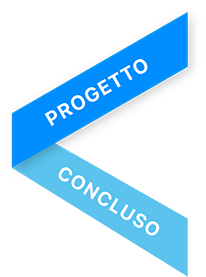
Festival delle Terre 2016 • Resistenza • Terra • Dignità • Nativi
- Raccolti € 165,00
- Sostenitori 6
- Scadenza Terminato
- Modalità Raccogli tutto Informazioni
Raccogli tutto
Il tuo contributo servirà a sostenere un progetto ambizioso. Scegli la ricompensa o la somma con cui vuoi sostenerlo e seleziona il metodo di pagamento che preferisci tra quelli disponibili. Ti ricordiamo che il progettista è il responsabile della campagna e dell'adempimento delle promesse fatte ai sostenitori; sarà sua premura informarti circa come verranno gestiti i fondi raccolti, anche se l'obiettivo non sarà stato completamente raggiunto. Le ricompense promesse sono comunque garantite dall’autore.
- Categoria Eventi & festival
Il Progetto
english version below
Il Festival delle Terre
Il Festival delle Terre – Premio Internazionale Audiovisivo della Biodiversità - presenta ogni anno una selezione di documentari, film d’inchiesta e animazioni per testimoniare l'universo dei diritti legati alla terra attraverso gli occhi e le parole di chi ne è protagonista: piccoli produttori, comunità locali, popoli indigeni e tutti coloro che si battono in difesa della terra e del territorio.
Le storie, di cui il Festival si fa testimone, raccontano le diverse forme della negazione dei diritti, delle resistenze e delle alternative in un’ottica di conservazione della “biodiversità”, intesa come diversità biologica, sociale e culturale. Sono storie comuni e allo stesso tempo complesse che una volta conosciute possono modificare radicalmente la nostra visione del mondo.
Fra le opere che hanno arricchito il Festival delle Terre ne segnaliamo alcune particolarmente significative:
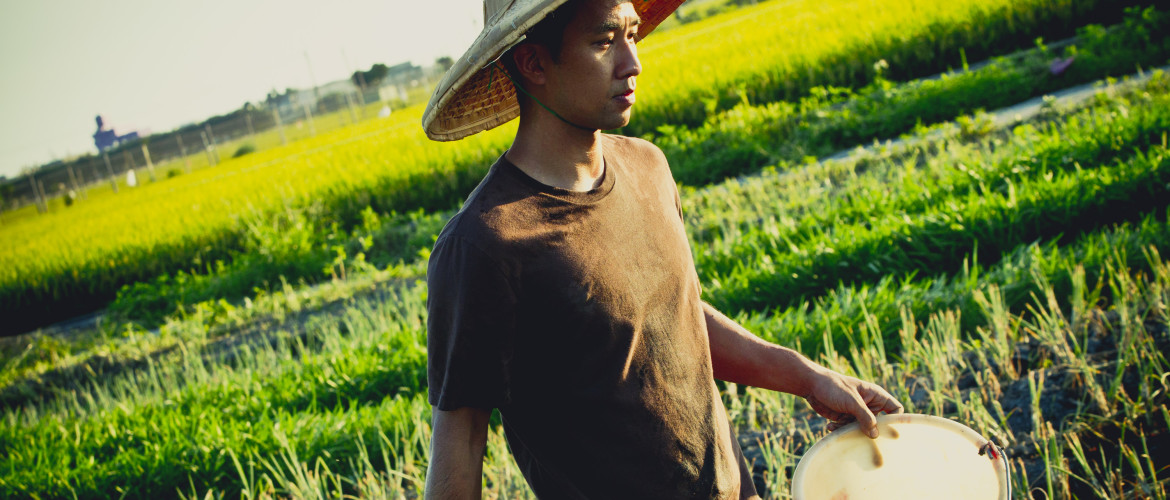 The Rice Bomber (Cina 2014), diretto da Cho Li. Contro la crisi dell’agricoltura, in Cina un lavoratore decide di ribellarsi mandando un segnale che possa risvegliare la coscienza del governo: costruisce così 17 bombe di riso, innocue ma cariche di un significato sintetizzato su un biglietto: “Contro l’importazione del riso”. Guarda il trailer ufficiale
The Rice Bomber (Cina 2014), diretto da Cho Li. Contro la crisi dell’agricoltura, in Cina un lavoratore decide di ribellarsi mandando un segnale che possa risvegliare la coscienza del governo: costruisce così 17 bombe di riso, innocue ma cariche di un significato sintetizzato su un biglietto: “Contro l’importazione del riso”. Guarda il trailer ufficiale
A good day to die (USA 2011) di David Mueller e Lynn Salt (Choctaw). Uno sguardo intimo sulla vita di Dennis Banks, uno dei fondatori nel 1968 dell’American Indian Movement. Guarda il trailer ufficiale
Cattedrali di sabbia (Italia 2010) di Paolo Carboni. Un viaggio attraverso la Sardegna che ha creduto e ceduto al miraggio dell'industrializzazione svendendo la propria cultura contadina, pastorale e un proprio vissuto quotidiano per saltare sul treno di un ipotetico sviluppo industriale. Guarda il trailer ufficiale
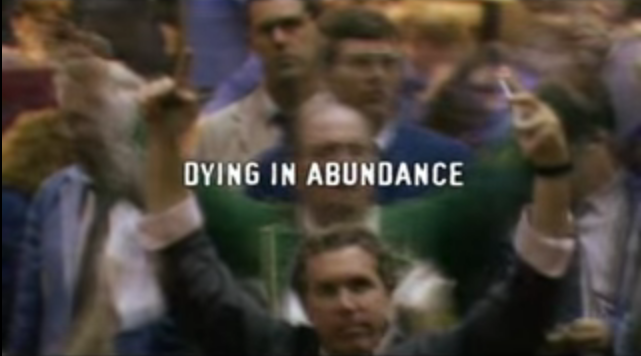
Dying in Abundance (India 2008) di Yorgos Avgeropoulos. Una manciata di multinazionali sono riuscite a controllare il cuore del cibo che mettiamo sulla nostra tavola ogni giorno: i semi stessi, e perciò la produzione agricola mondiale. Scommettitori del mondo sviluppato giocano dazzardo con il cibo, con l'aumento e la riduzione dei prezzi, giocando con il diritto fondamentale di milioni di persone all'accesso al cibo. Nel frattempo, quasi un miliardo di persone su questo pianeta è sottonutrito, e in 25.000 ogni giorno muoiono di fame. Succederà che la Terra non potrà più nutrire i propri abitanti? L'evidenza dimostra il contrario! Guarda il trailer ufficiale
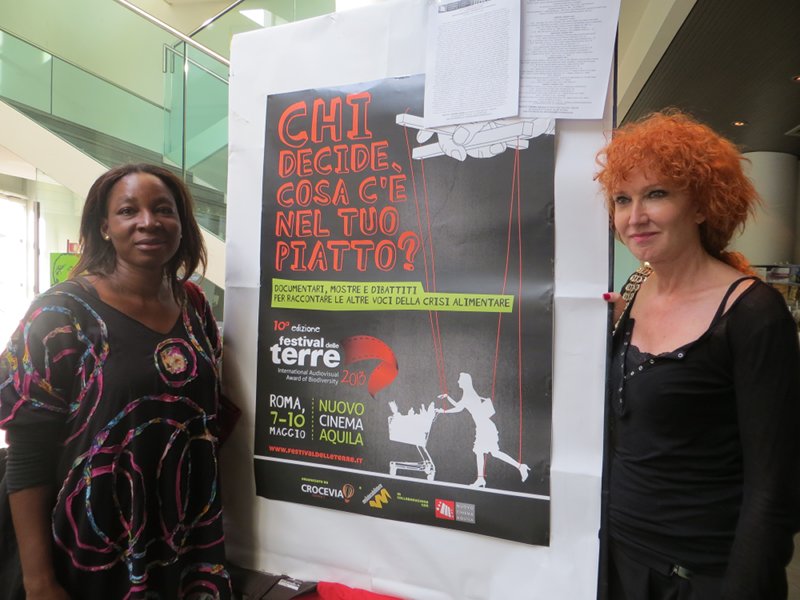
Abbiamo inoltre ospitato numerose iniziative fra cui segnaliamo "Pubblico in cerca d’Autore: nuove forme di distribuzione dell’audiovisivo", la tavola rotonda "Mercato globale vs. Mercato locale. In 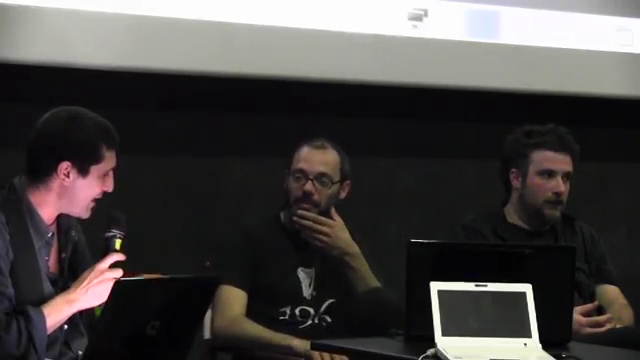 tempo di crisi, l’alternativa torna ad essere il mercato interno locale.", "Esperienze dal mondo: Towards food sovereignty", “Farmers' rights, sustainable use of agrobiodiversity and international policies / Diritti dei contadini, uso sostenibile dell’agrobiodiversità e indirizzi politici internazionali” (Auditorium 2010), il dibattito pubblico “Crisi alimentare tra emergenza e sviluppo sostenibile” con gli ospiti internazionali SPI (Indonesia Peasant Union, Indonesia) e CNCR (Conseil National de Concertation et de Coopération des Curaux, Senegal)
tempo di crisi, l’alternativa torna ad essere il mercato interno locale.", "Esperienze dal mondo: Towards food sovereignty", “Farmers' rights, sustainable use of agrobiodiversity and international policies / Diritti dei contadini, uso sostenibile dell’agrobiodiversità e indirizzi politici internazionali” (Auditorium 2010), il dibattito pubblico “Crisi alimentare tra emergenza e sviluppo sostenibile” con gli ospiti internazionali SPI (Indonesia Peasant Union, Indonesia) e CNCR (Conseil National de Concertation et de Coopération des Curaux, Senegal)
La XIII Edizione - 2016
La 13° edizione del Festival delle Terre avrà luogo nelle splendide location del Cinema Trevi di Roma e del Teatro Quirinetta dal 1 al 4 Dicembre 2016.
Le sezioni in concorso
- “Terre Resistenti”. La salvaguardia dei terreni, il rispetto per la terra, e per chi produce cibo, la tutela degli ecosistemi, la resistenza nei campi, nei mari e nelle foreste costituiscono da sempre questioni care al festival. L'idea di sovranità alimentare come alternativa alla speculazione finanziaria sulle risorse del pianeta.
- “Popoli nativi. Racconti di dignità”. Le testimonianze di tutte quelle comunità che si battono per la difesa dei loro territori e dei loro diritti per salvare dall’estinzione la loro storia di armonica convivenza con la natura, minacciata dagli interessi economici globali e dall’avanzamento tecnologico.
- “Preservare il Pianeta. Alternative per nutrire il mondo”. Questa sezione sarà dedicata a opere a tematica ambientale e a documentari che testimoniano della gestione sostenibile delle risorse del pianeta, della difesa della biodiversità e del raggiungimento della sicurezza alimentare.
Alle consuete tematiche del Festival quest'anno si aggiungerà uno speciale
- Focus sul tema del “bracciantato in agricoltura”. La collaborazione con il Centro Sperimentale di Cinematografia permetterà di approfondire la conoscenza dei temi trattati attraverso la visione di film e documentari tratti dal fondo della Cineteca nazionale.
Anche quest’anno il festival ospiterà numerose iniziative parallele oltre alle visioni in sala: incontri con gli autori e le autrici, mostre fotografiche e di fumetti, dibattiti e matinée per i ragazzi delle scuole. L’ultima giornata del festival avrà luogo presso il teatro “Teatro Quirinetta” che ospiterà una selezione delle opere più rappresentative del festival e la premiazione finale con evento serale.
Foto: The Water Law di Andrè D'Elia - Vincitore Premio Berta Film 2015
I premi
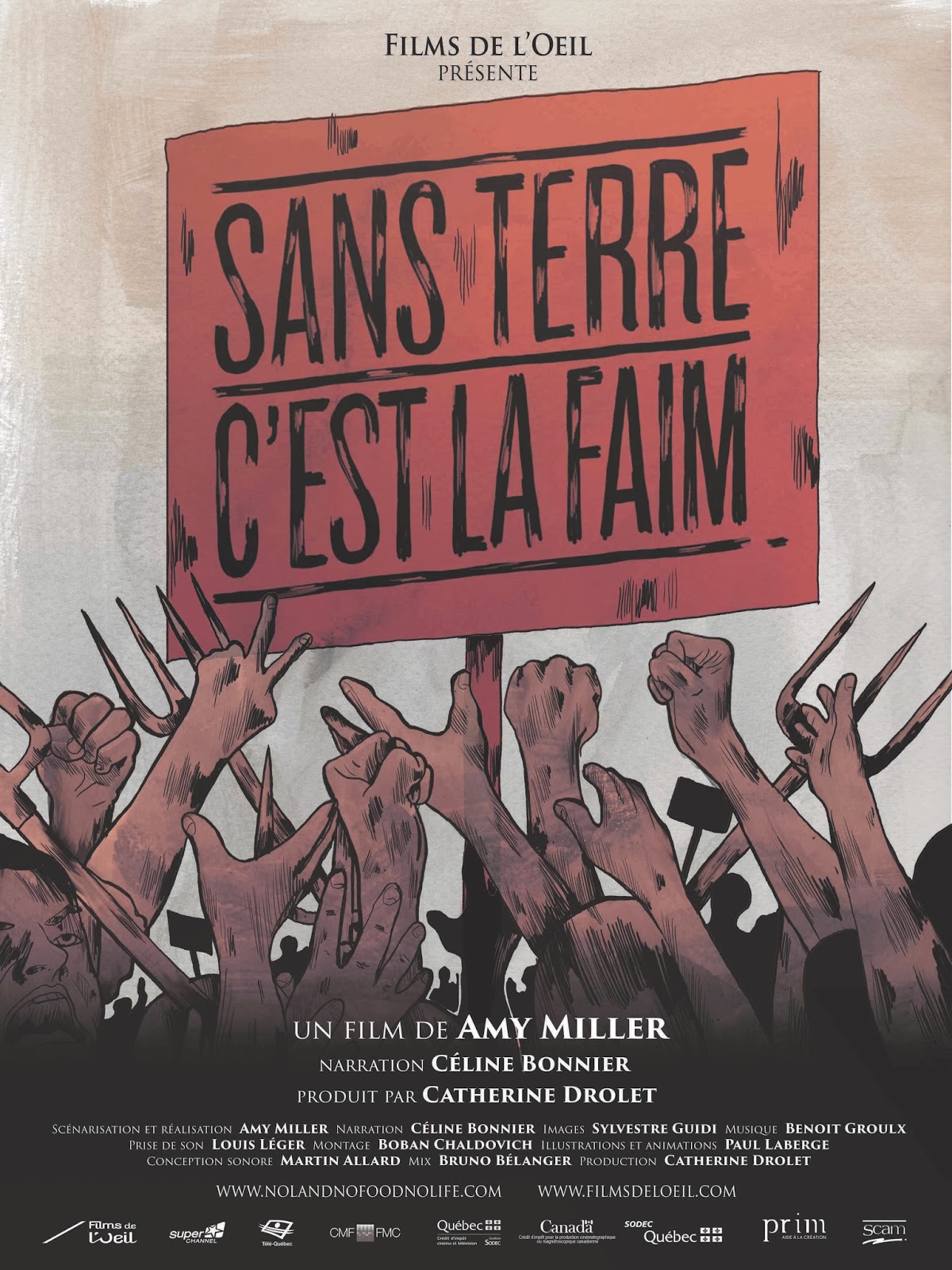 Il festival nominerà una giuria che, chiuse le iscrizioni, si riunirà per giudicare i lavori in gara e assegnare i seguenti premi: “Premio Crocevia” 500 € (vinto nel 2015 da Sans Terre C'est la Faim di Amy Miller - a lato la locandina) e, per il secondo anno consecutivo, anche il “Premio Berta Film”. La Berta Film è una società di distribuzione internazionale di documentari; il premio consiste in un contratto di distribuzione, che permetterà al film vincitore di essere rappresentato e promosso nel circuito del mercato internazionale del documentario.
Il festival nominerà una giuria che, chiuse le iscrizioni, si riunirà per giudicare i lavori in gara e assegnare i seguenti premi: “Premio Crocevia” 500 € (vinto nel 2015 da Sans Terre C'est la Faim di Amy Miller - a lato la locandina) e, per il secondo anno consecutivo, anche il “Premio Berta Film”. La Berta Film è una società di distribuzione internazionale di documentari; il premio consiste in un contratto di distribuzione, che permetterà al film vincitore di essere rappresentato e promosso nel circuito del mercato internazionale del documentario.
Il festival si svolgerà in partnership con “Immagini dal Sud del mondo” pluriventennale rassegna cinematografica che propone ogni anno una selezione di film e documentari indipendenti di registi asiatici, africani, sudamericani ed europei.
A cosa serve il tuo aiuto
Tramite il Festival, autori italiani e internazionali hanno finora proposto gratuitamente al pubblico centinaia di film documentari, tra cui alcuni mai distribuiti in Italia, opere premiate e anticipatrici che aprono una finestra di confronto e informazione indispensabile, fuori dal mainstream ufficiale e senza nessuna censura.
Oggi con la crisi, i tagli alla cultura e un crescente disinteresse delle istituzioni per festival poco mainstream come il nostro, non riusciamo a sostenere da soli le spese ed è per questo che vi chiediamo una mano.
Il Festival vive per lo più di autofinanziamento o del sostegno di piccoli sponsor privati e si alimenta della passione di coloro che vi collaborano e hanno a cuore la diffusione di documentari altrimenti difficilmente visibili in Italia. Il team del Festival delle Terre si occupa di selezionare i lavori delle produzioni indipendenti; sottotitolare e tradurre la versione originale; organizzare la logistica e la promozione sul territorio; organizzare eventi, mostre fotografiche e dibattiti con registi ed esperti; diffondere le opere conservate nella Mediateca delle Terre.
Non si tratta solo di diffusione di opere audiovisive: l'evento vuole contribuire a far conoscere l'identità culturale dei popoli, intesa, in senso lato, come l’insieme degli aspetti spirituali, materiali, intellettuali ed emozionali che contraddistinguono una società o un gruppo sociale. Non solo arte e letteratura, ma anche modi di vita, diritti fondamentali degli esseri umani, sistemi di valori, tradizioni e credenze, in un'ottica di conservazione della “biodiversità”, intesa come diversità biologica, sociale e culturale. Il focus sul tema delle migrazioni contemporanee ci ha permesso di mostrare opere indipendenti di giovani registi e di aprire un dibattito necessario sulla condizione di milioni di rifugiati che quotidianamente si confrontano con l’ombra incombente delle recinzioni tra stati e degli emergenti nazionalismi.
Nota sulle ricompese
Ti ringraziamo fin da subito per il sostegno che vorrai darci. Se hai la possibilità di venire ad assistere al festival ci potrai aiutare ancora di più ritirando la tua "ricompensa" direttamente dalle nostre mani. Risparmieremo così il costo della spedizione. In caso contrario ti invieremo la "ricompensa" tramite posta. Ogni aiuto è ben accetto!
Chi siamo
Il Festival delle Terre è organizzato dal Centro Internazionale Crocevia, associazione di solidarietà e cooperazione internazionale costituita nel 1958. L’associazione opera nei settori dell’educazione, della comunicazione e dell’agricoltura, promuovendo e realizzando attività di terreno in favore di comunità indigene e contadine, oltre ad attività di formazione e creazione di reti internazionali di organizzazioni, come il Comitato Internazionale per la Sovranità Alimentare (IPC on Food Sovereignity).
Contatti e informazioni
Festival delle Terre
Festival delle Terre – International Audiovisual Award of Biodiversity - showcases each year a selection of documentaries, investigation movies and animations to witness the universe of land rights, through the eyes and the words of the ones that carry on the fight: small farmers, local communities, indigenous peoples and all those who fight to defend their land and territory around the world.
The stories, of which the Festival becomes a witness, tell of the various forms of denial of rights, resistances and alternatives with a view to conservation of "biodiversity", understood as biological, social and cultural diversity. They are common and at the same time complex stories that once known can radically change our vision of the world.
Many works have enriched the festival’s film archive in the last years. Among them:

The Rice Bomber (China 2014), directed by Cho Li. Based on real events that took place in Taiwan in 2003, Cho Li’s socially aware drama The Rice Bomber follows a farmer who takes a stand against the government policies that are destroying the country’s agriculture and devastating the lives of people in rural areas. Official trailer
A good day to die (USA 2011) directed by David Mueller e Lynn Salt (Choctaw). A stirring account of the forgotten Indian civil rights movement, this documentary recounts not only the struggle but also depicts the terrible repression they endured. Official trailer
Cattedrali di sabbia (Italy 2010) directed by Paolo Carboni. A journey through Sardinia, an italian region where rural culture and pastoral traditions have been partially neglected in order to pursue the industrialisation process. Official trailer

Dying in Abundance (India 2008) directed by Yorgos Avgeropoulos. A handful of multinational companies have managed to control the "heart" of the food we put on our table everyday: The very seed and, therefore, global agricultural production. Brokers in the developed world gamble with food, raising and lowering prices, playing with the fundamental right of millions of people to access food. Meanwhile, almost a billion people on this planet are undernourished and 25,000 die of hunger each day. Could it be that the Earth can no longer feed its population? "Dying in abundance" unfolds the absurd before our eyes, the interconnections of a system in which, while there is enough food, it is so expensive the poor cannot afford it. Official trailer
We also hosted several initiatives, among which we would highlight "Public in Search of an Author: new forms of audiovisual distribution", the round table "Global vs. Local Market. In times of crisis, the  alternative becomes the internal local market", “Experiences from the world: Towards food sovereignty", "Farmers' rights, sustainable use of agrobiodiversity and international policies" (Auditorium 2010), the public debate "Food crisis between emergency and sustainable development” with international guests SPI (Indonesia Peasant Union, Indonesia) and CNCR (Conseil National de Concertation et de Coopération des Curaux, Senegal)
alternative becomes the internal local market", “Experiences from the world: Towards food sovereignty", "Farmers' rights, sustainable use of agrobiodiversity and international policies" (Auditorium 2010), the public debate "Food crisis between emergency and sustainable development” with international guests SPI (Indonesia Peasant Union, Indonesia) and CNCR (Conseil National de Concertation et de Coopération des Curaux, Senegal)
XIII Edition - 2016
The 13th edition of Festivall delle Terre will take place in the wonderful locations of Cinema Trevi of Rome – National Film Library and Teatro Quirinetta from 1 to 4 December 2016.
This year sections will be :
- Resisting Lands This section will host documentaries about the following topics: safeguarding of soils, respect for the Earth and all small food producers, preserving ecosystems, rural resistance, food sovereignty as an alternative to the global speculation process of planet’s resources.
- “Indigenous people. Tales of dignity” We welcome works that expose the problem of small communities that have to fight against industrialization and global economic interests in order to save themselves and their living in harmony with nature.
- “Preserving the planet. Alternatives to feed the world” This section will be dedicated to works focused on environment and documentaries about th sustainable management of the resources of the planet, biodiversity and food safety.
- This year the festival will also host a special focus on «bracciantato» (farm workers) in agriculture. The section will welcome works about rural resistance. The ongoing collaboration with Centro Sperimentale di Cinematografia will allow deepening the debate over this topic through the vision of films and documentaries of the National Film Library archive.
This year’s program include, along with the screenings, several parallel initiatives: photographic and comics exhibitions, meetings with the authors, debates and morning screenings for an audience of young people. The last day of the festival will take place at the “Quirinetta Theater": this location will host screenings of the most representative documentaries along with the award ceremony and the evening show.
Photo: The Water Law by Andrè D'Elia - Winner of Berta Film Award 2015
The awards
The Festival will nominate a Jury that will reunite to award the following prizes: “Premio Crocevia” 500 € and for the second year “Premio Berta Film” (a film distribution agreement sponsored by Berta Film, an Italian film distribution company active worldwide with a strong focus on documentary). The festival will be held in partnership with “Immagini dal Sud del mondo”, a film festival that screen each year a selection of independent movies of African, Asian, Southamerican and European filmakers.
Why your help is needed
The Festival hosted a lot of italian and foreign authors. In the last years, Festival delle Terre screened, for free,hundreds of documentaries and premiers, works never distributed on the italian territory, awarded independent films able to inform the public and open a necessary and uncensored debate.
Nowadays the crisis, budget cuts to culture and education and the indifference of the institutions led to this situation: we can't face all the expenses related to the festival organization.
The Festival is mainly self- financed and it just receive a little help from commercial partnerships. Much of the work is carried on thanks to the volunteer work of all those who care about the dissemination of these documentaries in Italy. Festival delle Terre staff has to: select the works to screen; realize translations and subtitles of the documentaries in competition; organize the logistics and the promotion of the event; organize paralles events such as round tables, debates, encounters with the authors and photographic exhibitions; spread and promote the documentaries collected in Mediateca delle Terre archive.
It is not only about broadcasting of audiovisual works: the event aims to contribute to raise awareness of the cultural identity of peoples, understood in a broad sense, as the set of spiritual, material, intellectual and emotional aspects that characterize a society or social group. Not only art and literature, but also ways of life, fundamental rights of human beings, value systems, traditions and beliefs, in a perspective of “biodiversity” conservation, understood as biological, social and cultural diversity. The focus on the theme of contemporary migrations has allowed us to show independent works of young filmmakers and to open a needed debate on the condition of millions of refugees that daily are confronted with the looming shadow of fences between states and rising nationalisms.
Note on rewards
We thank you for the support you will want to give us. If you have the chance to come to attend the festival you will be able to help us even more by withdrawing your "reward" directly from our hands. So we will save the cost of shipping. We are sorry but we can send rewards only to Italy. Any help is welcome!
Who we are
The Festival is organized by Centro Internazionale Crocevia, an Italian public interest NGO founded in 1958. Crocevia works on environmental and agrarian issues, with specific focus on community alternatives. It works in partnership with many local and national civil society and small food producers’ organizations in Latin America, Asia, Africa, the Middle-East and Europe. IPC brings together all the major farmers’ and fisherfolk’s associations worldwide, and facilitates dialogue between their representatives and FAO.
Info and contacts

La foto "Please Help" è di / Photo "Please Help" by Alexander Baxevanis
Gallery


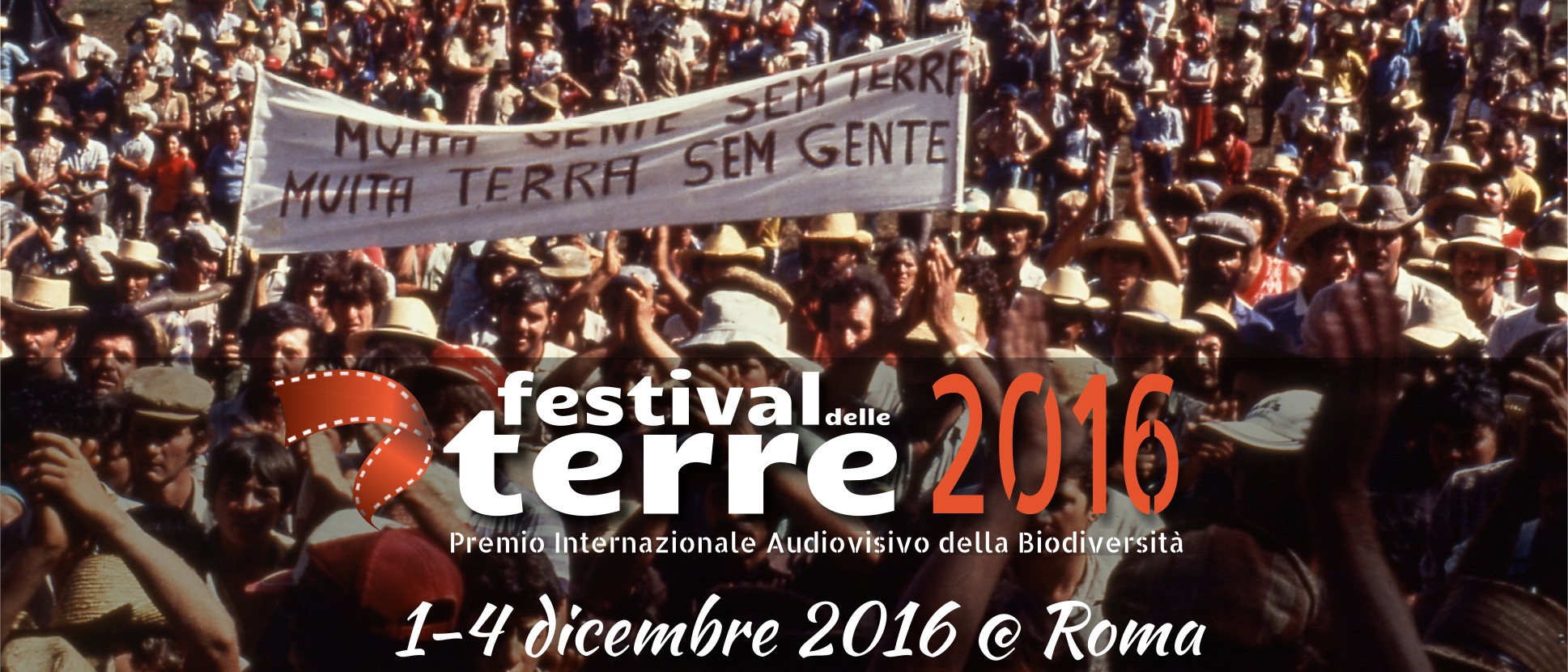
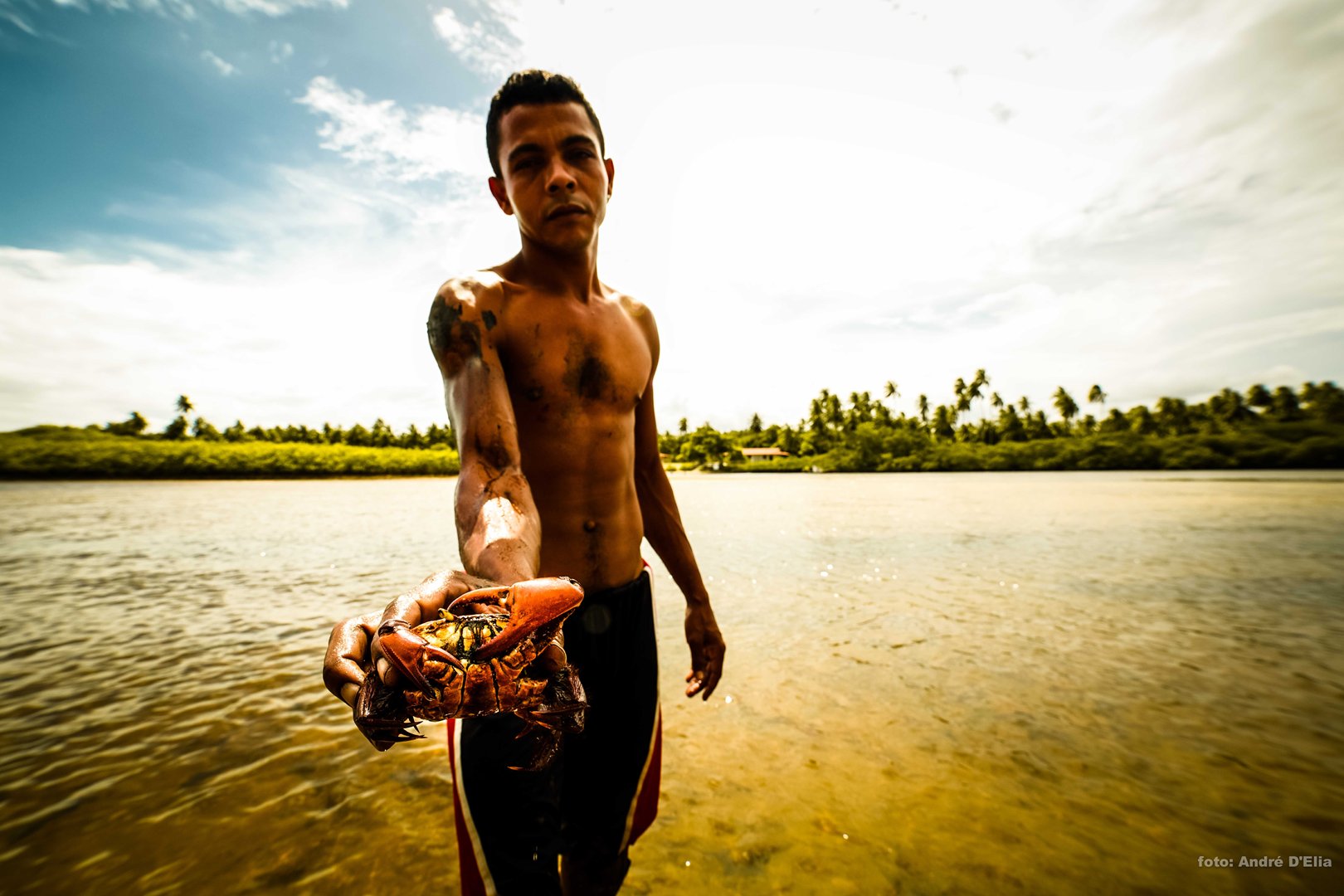







Commenti (3)